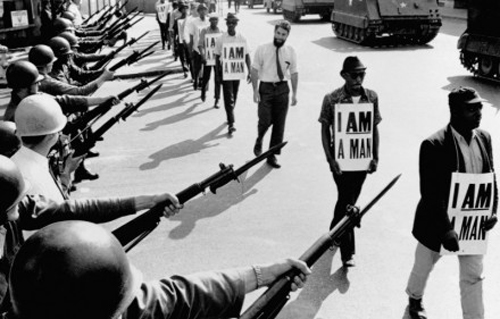People thought that if African-Americans gained civil rights, the world would explode. They thought that the sun would shrink to the size of a pea, and all of the planets would begin orbiting around the moon. They thought that the dead would rise from their graves and rob all of the banks, that Lucifer would become the lord of our world, and that kids would begin to hit puberty while still in the womb. People thought that if African-Americans got the same rights as whites, that Newton's laws of motion would be disproved, and it would begin to rain mashed potatoes. People thought that duct tape would fail at fixing everything, there would be a second civil war, and people would begin to wear their socks on their faces. Stepping on a Lego would be pleasurable, the Easter bunny would come during Christmas, and Santa Claus would conquer the Martians of Mars. Long story short, people thought crazy things would happen if civil rights were given to African-Americans.
...Actually, they might not have been as extreme as the ones stated above, but to say the truth, some theories were. There were people who believed that African-Americans were, in fact, evil, all because of the color of their skin. These kinds of beliefs of those days put an effect on the race today, too. Rumors and old ways of thinking carry on through the ages, and racism still exists.
People have many misconceptions about issues today, too. For example, the Gay Rights movement has people against it with ridiculous reasons. They make excuses like that "Gay marriage would ruin what marriage means", when divorces are legal.
As you can see, people don't always know what they're talking about when they make accusations about the future impact of something. And sometimes, those ridiculous theories are believed by many people far and wide.







